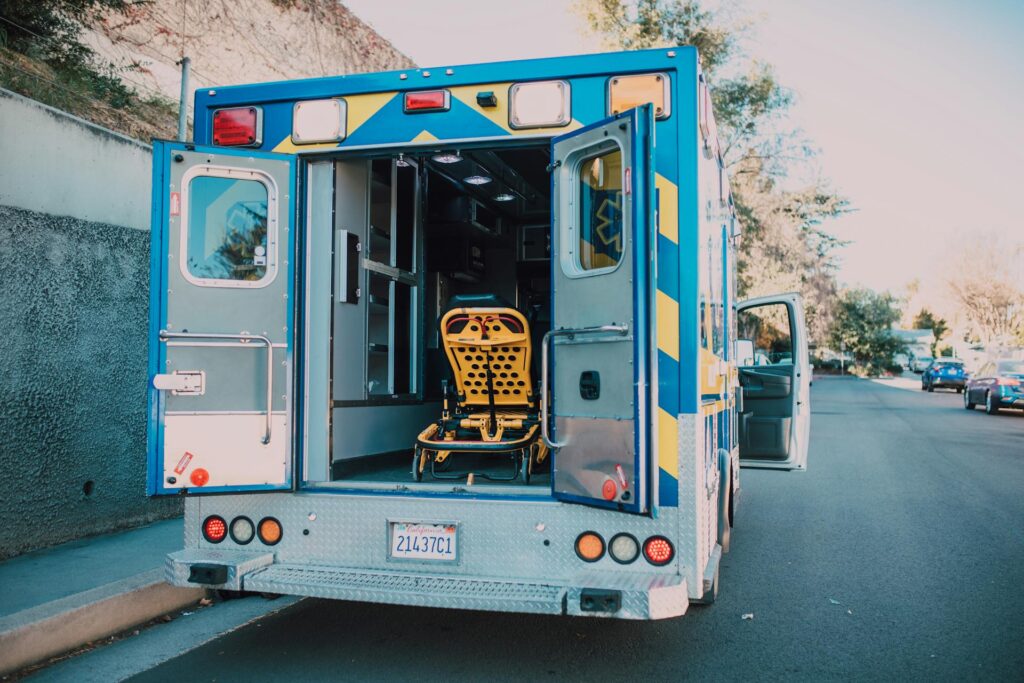The One Big Beautiful Bill Act (OBBBA) aims to reshape large swaths of the American economy and government. While the OBBBA will influence everything from tax rates to immigration, many have focused on how it will change the healthcare sector.
According to the Congressional Budget Office (CBO), the OBBBA will lead to about 17 million Americans losing their health insurance coverage by 2034. It will also drastically cut funding to rural hospitals, potentially forcing 300 hospitals to close or reduce the services they offer, according to the American Hospital Association.
Regardless of where healthcare providers operate, their emergency rooms and emergency medical services will face significant challenges as OBBBA makes changes to government programs, access to insurance, and hospital funding. These changes will influence emergency department hiring trends nationwide.
What the OBBBA Means for Emergency Rooms
It might not be immediately obvious to everyone, but the OBBBA will likely put an enormous strain on emergency rooms. That’s because cuts to Medicaid and ACA will make it more difficult for some people to seek care from their primary physicians. Instead, they will turn to ERs for last-minute help.
Cuts to Medicaid, ACA, and Medicare Mean People Lose Health Insurance Coverage
The OBBBA will cut about $1 trillion from federal healthcare programs, including Medicaid, Medicare, and the AVA Marketplace. It’s difficult to know precisely how much the federal government will cut from these programs because some of its funding matches state funds. If states can’t afford to meet their funding goals, the federal government will contribute less money.
Regardless of the exact amount that gets cut, an estimated 14.2 million Americans will lose their healthcare insurance.
Even those who retain insurance through federal and state programs will end up spending more money on healthcare. For example, many Americans who currently purchase insurance through the ACA Marketplace will lose subsidies that made policies more affordable. Additionally, most migrants, including those living in the U.S. legally, will lose access to ACA Marketplace plans.
More People Will Likely Use Emergency Rooms for Preventable Care
The United States Census Bureau lists lack of health insurance as a major factor in whether people rely on emergency rooms for general healthcare needs. When people don’t have health insurance, going to a general practitioner or specialist can become an insurmountable expense. Those who can’t afford to pay out of pocket, therefore, often delay treatments for as long as possible. Instead of getting services that could prevent chronic illness, they wait until they need life-saving services from an ER.
The Impact of Reduced Funding for Rural Hospitals
Reduced federal funding for rural hospitals could also mean that ERs in densely populated areas receive more patients. If someone living in a rural area needs immediate care, they will need to use the nearest emergency room, regardless of whether that ER is 10 miles or 100 miles away. As more rural residents turn to city hospitals, those ER rooms could experience a surge in patients.
Immediate Hiring Implications for ER Staffing
The OBBBA won’t change federal healthcare programs until 2026, so it’s difficult to predict how many people will lose affordable insurance and access to care. Unquestionably, though, more people will start relying on ERs, and that will force healthcare centers to rethink their ER staffing solutions as they increase hospital workforce challenges in 2025 and beyond.
Some of the immediate hiring implications to consider include:
- Unpredictable demand: it’s impossible to know when uninsured patients will turn to ERs for services, so hospitals will need agile staffing solutions that can adapt to sudden spikes in demand.
- Budget constraints: With unpredictable funding and anticipated shortfalls, hospitals will need help from healthcare recruitment experts who can adapt to hiring freezes, reduced shifts, and tight budgetary requirements.
- Strategic flexibility: Fluctuating demands and tighter budgets mean hospitals will need to adopt the kind of strategic flexibility that an experienced healthcare staffing network can meet better than a traditional HR department.
Why MRINetwork Healthcare Offices — and HireQuest Health Partners — Are the Smart Choice
MRINetwork and HireQuest Health offer the kinds of flexible ER staffing solutions healthcare centers will need as they face upcoming changes and challenges. HireQuest already has an extensive healthcare staffing network designed to meet evolving ER needs.
Additionally, your healthcare center can benefit from HireQuest’s:
- Background screening designed to meet your unique requirements
- Comprehensive medical screenings
- 100% W-2 e-verified workforce
- 90-day direct hire guarantee
Right now, no one is completely certain how the OBBBA will reshape ER staffing. It’s obvious, however, that changes will happen. You might already see some new trends taking place in your department. You should expect those and other changes to become increasingly prevalent over the next few years.
Reach out to HireQuest today so we can start building a relationship that will benefit your healthcare company for an unknown future.

Connect with MRINetwork